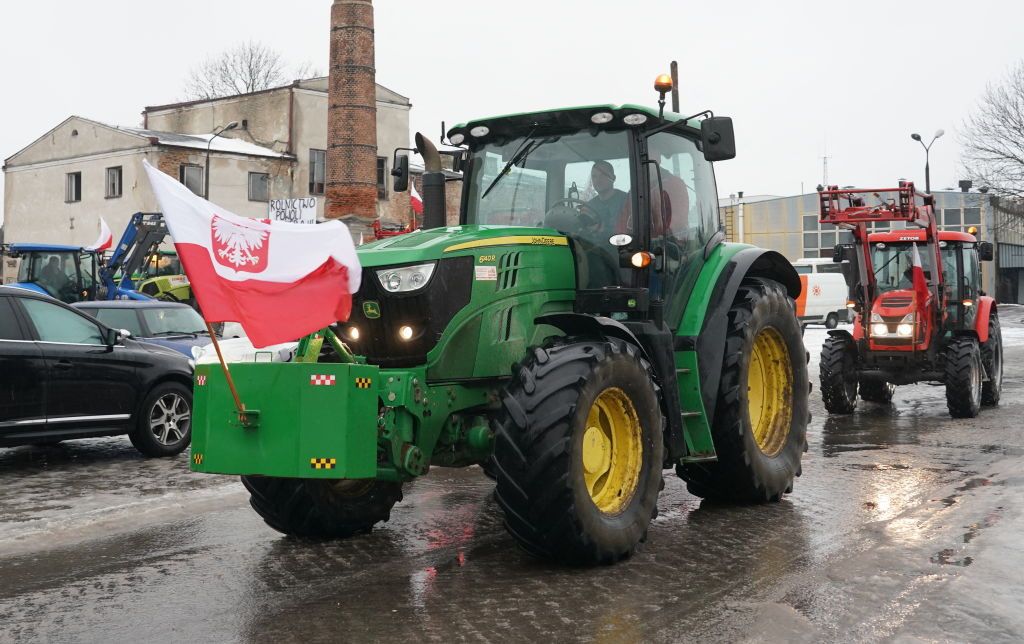Polish farmers to stage more protests at Ukrainian border, nationwide

Polish farmers’ Solidarity trade union announced a nationwide strike on Feb. 1 that will start with the blockading of all Polish border crossings with Ukraine.
Polish farmers began widespread protests across the country on Jan. 24 on the heels of a several-month-long series of demonstrations and border blockades by Polish truckers, who said that the liberalization of permits for Ukrainian truckers had hurt their domestic businesses.
Farmers in France, Belgium, Portugal, Greece, and Germany have also been protesting what they claim are the negative impacts on farming of the EU’s efforts to address climate change, as well as the influx of cheap Ukrainian imports to aid Ukraine’s war effort.
“Our patience has worn thin. The position of Brussels on the last day of January 2024 is unacceptable for our entire agricultural community,” Solidarity said in a statement, referring to what it deems as inaction on the part of the EU, which is headquartered in Belgium.
“Additionally, the passivity of the Polish authorities and declarations of cooperation with the European Commission ... regarding the import of agricultural produce and food products from Ukraine leave us with no other choice but to declare a general strike.”
In addition to blocking Poland’s border crossings with Ukraine, Solidarity said it would plan blockades of roads across Poland between Feb. 9 and March 10.
Polish Prime Minister Donald Tusk said on Jan. 24 that he would try to address Polish farmers’ concerns in a way that does not violate EU regulations and would be acceptable for the Ukrainian and Polish sides.
He also acknowledged that such an agreement would probably be “accepted with difficulty” by Ukrainians.
The new round of demonstrations came as the truckers’ protest appeared to have at least been temporarily halted.
Polish truckers suspended their blockade of the border last week, lifting the closure of the final border crossing on Jan. 16.
Romanian farmers and truckers have held similar protests at Ukrainian border crossings for months, protesting the economic impacts of a free trade agreement that have sparked worries about uneven competition and risks to domestic production. They have warned that more protests may be held along the Romanian border if the EU does not give into its demands.












